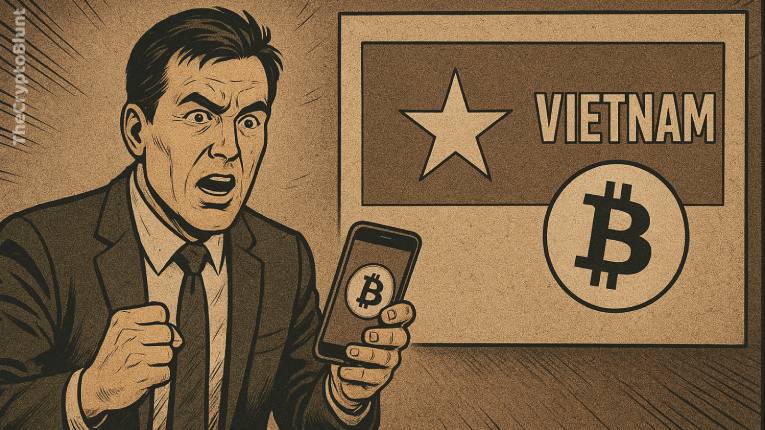More than 86 million bank accounts were deleted by commercial banks in Vietnam at the start of September 2025, underscoring the importance of being your own bank.
In a recent action affecting an estimated 43% of the nation’s bank accounts, over 86 million bank accounts were permanently closed in Vietnam as a measure to “prevent fraud and cybercrime.”
The account closures were prompted by new regulations requiring biometric authentication and are giving Bitcoin one of its best-ever free publicity campaigns.
Vietnam Adopts Biometric Verification for 86 Million Bank Accounts
More than 86 million bank accounts were deleted by commercial banks in Vietnam at the start of September 2025, according to Vietnam News and statements from the State Bank of Vietnam (SBV).
Officials state the purge targets unverified or long-inactive accounts, with the move being framed as a measure to prevent fraud, cybercrime, and money laundering.
From the country’s estimated 200 million accounts, 113 million survived the verification sweep, while around 86 million bank accounts were deemed to be inactive.
A mandate for biometric checks, including face scans, has been issued for both account registration and certain online transactions. Foreign residents are among those most affected due to in-person requirements and limited remote compliance options.
When Your Bank Account Gets Frozen
The overnight account closures in Vietnam are not an isolated event. Over recent years, millions of customer funds have been frozen by governments and banks worldwide, who cite fraud, sanctions, or regulatory mandates.
In 2022, the funds of depositors at several rural Chinese banks were frozen without warning, a development that sparked public outrage and protests when people’s life savings were blocked due to alleged fraud or mismanagement.
In the United States, law enforcement and banks regularly freeze or seize funds during investigations, with civil asset forfeiture affecting individuals who have not been found guilty of a crime.
The accounts of individuals in the United Kingdom can be frozen through “Account Freezing Orders.” Furthermore, anti-money-laundering laws mean even ordinary customers face sudden freezing or closure for compliance anomalies.
In 2022, emergency powers were used by the Canadian government to freeze bank and crypto accounts linked to protestors and their supporters, in some cases without judicial process.
Protective Measures or Systemic Threats?
These measures are said by authorities to prevent financial crime, but critics, especially within the crypto community, highlight the risks. The freezing of 86 million bank accounts in Vietnam underscores the importance of being your own bank.
In centralized systems, your funds are held at the discretion of banks or the state. Regulatory and political shifts can lead to sudden exclusions, errors, or even abuse, sometimes with limited recourse for customers.
Due to growing digitization and biometric controls, financial access is being increasingly tied to identity. This is seen as a blessing for security, but a curse if systems fail or if someone falls afoul of policy.
Unlike traditional bank accounts, Bitcoin allows for funds to be held and transacted without an intermediary, making arbitrary freezes or seizures far more difficult. This is increasingly relevant in a world of shifting compliance standards and debanking.
Real sovereignty can be defined as financial independence from both malicious actors and even the most well-intentioned (or overbearing) governments and institutions.
















